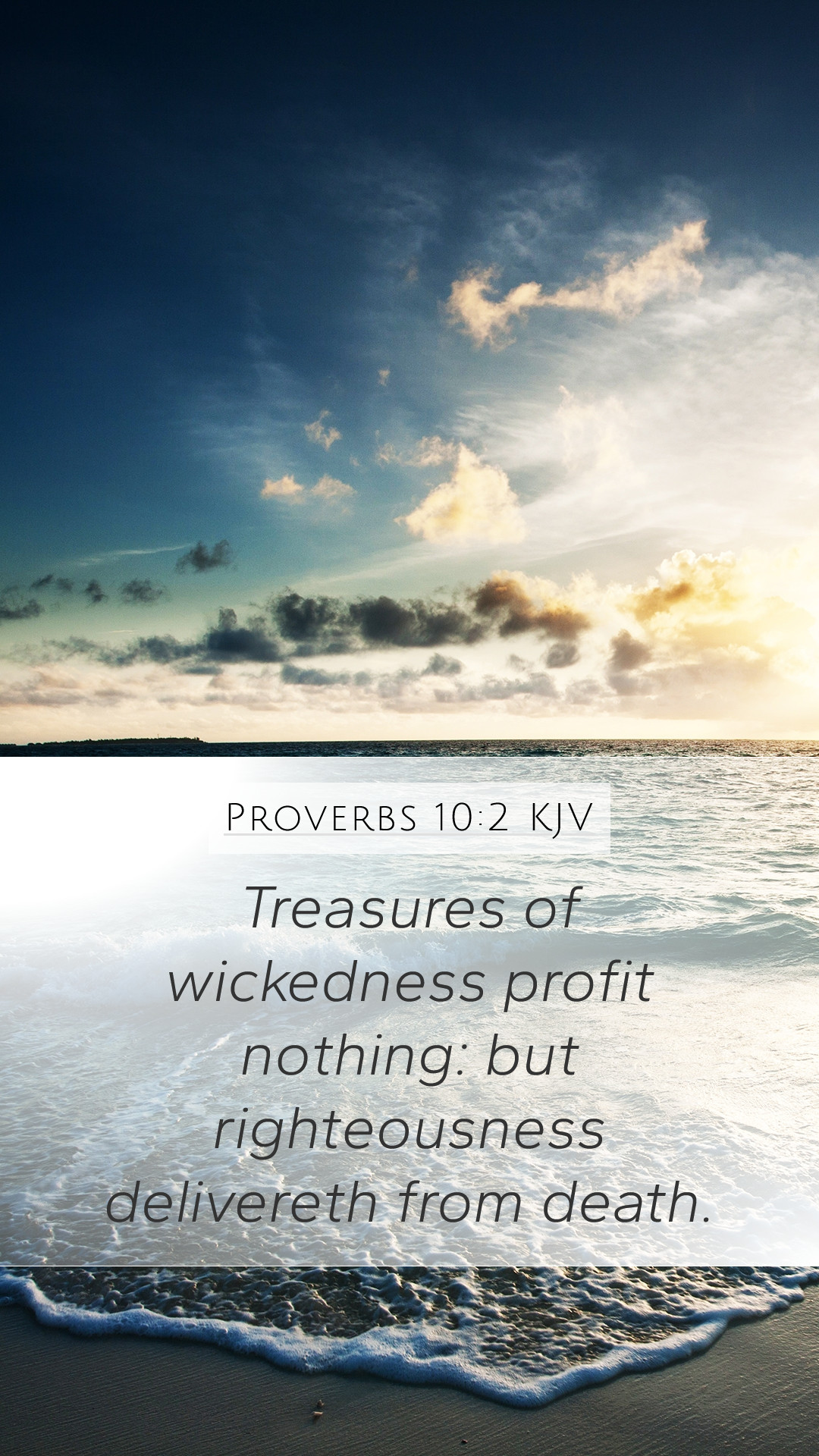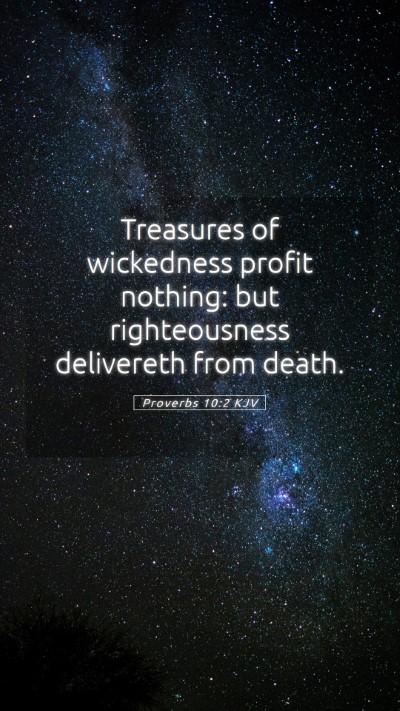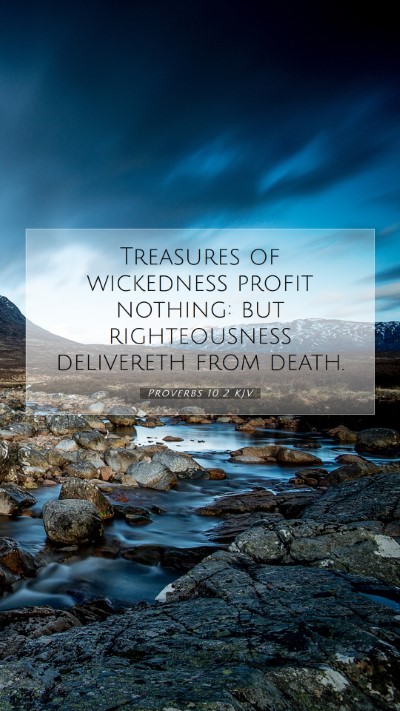Meaning and Interpretation
Proverbs 10:2 encapsulates the theme of morality in wealth acquisition and emphasizes the transient nature of riches gained through unjust means. Wealth that is amassed through wickedness ultimately brings no lasting benefit.
Matthew Henry highlights that while ill-gotten gains might seem alluring, they lead to destruction, whereas living righteously offers true deliverance and life. This verse contrasts the outcomes of the wicked versus the righteous, underscoring a common biblical principle: righteousness leads to life, while wickedness leads to death.
Albert Barnes asserts that material wealth gained through immoral actions fails to provide any spiritual enrichment. It creates a hollow success that can lead to spiritual and physical ruin. True wealth, in a biblical sense, is founded on integrity and moral conduct. Righteousness acts as a protective beacon, steering individuals away from death and towards divine favor.
Adam Clarke emphasizes that righteousness not only refers to moral actions but also entails a relationship with God. The righteous, through their connection with the divine, undergo divine protection. Clarke suggests that the wealth gifted through righteousness surpasses that of mere monetary value, leading to God's everlasting favor and life.
Applications for Daily Life
Understanding Proverbs 10:2 encourages us to evaluate our sources of income and the means by which we accumulate wealth. The teachings prompt us to:
- Prioritize ethical practices in business and personal finance.
- Seek righteousness not just in financial matters but in all life choices.
- Acknowledge the temporary nature of wealth and focus on building a legacy founded on integrity and faith.
Significance Within the Broader Biblical Context
This verse fits into the broader biblical narrative concerning wealth and morality:
- Proverbs 11:4: "Riches profit not in the day of wrath: but righteousness delivereth from death."
- Proverbs 21:6: "The getting of treasures by a lying tongue is a vanity tossed to and fro of them that seek death."
- Luke 16:19-31: The rich man and Lazarus exemplifying the stakes of life choices related to wealth and righteousness.
Conclusion
Proverbs 10:2 serves as a timeless reminder of the futility of immoral wealth and the enduring value of righteousness. When seeking answers to overall Bible verse meanings, interpretations, and explanations, this verse stands as an essential piece of the puzzle, reinforcing the biblical truth that ethical living pays dividends that transcend material riches.


